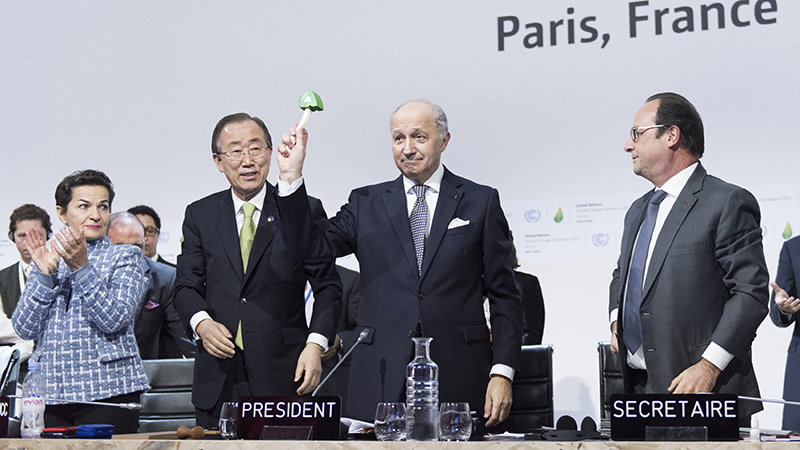Week by week the chances of the Paris climate deal coming into force ahead of November’s COP22 UN climate summit are rising.
Fifty-seven countries accounting for 57.88% of global emissions have now indicated they will sign the agreement before the end of 2016.
Countries indicating they are accelerating their parliamentary work to do this include New Zealand, Japan and China.
And after initially claiming he would ignore the pact, a meeting with US secretary of state John Kerry has now convinced Philippines president Rodrigo Duterte to support it.
Speaking to Climate Home on Thursday New Zealand diplomat and co-chair of the UN climate talks Jo Tyndall said there were “strong indications” the deal will go live in the next few months.
What happens then? Climate Home will explain all next week.
Espinosa interview
The new UN climate chief faced an easy first interview since assuming office, speaking to the Orwellian-sounding UN News Centre.
She said ensuring governments deliver on their promises in the context of national legislation would be vital in the coming years.
“We need to focus a lot on implementation of the Paris agreement and which translates to the national programmes on climate change for each and every country,” she said.
“We will need to reach out to all those actors – to governments, to civil societies, to businesses – and help in mobilising them to help in this fight against climate change.”
https://www.youtube.com/watch?v=qiIpeP_IhiI
IPCC 1.5 report
Scientists in Geneva this week thrashed out the basics of what could be one of the most important reports yet produced by the International Panel on Climate Change.
The study is slated for completion by 2018, and will explore the chances of limiting or returning to 1.5C of warming above pre industrial levels, an aspirational limit agreed in the Paris agreement.
“It comes at a moment there is urgency and also momentum to really bring science and policy together to make an important decision,” said Thelma Krug, a Brazilian scientist who is IPCC vice chair. “It’s most likely the most pressing report the IPCC will have to produce.”
Not everyone is impressed. Mike Hulme, a scientist at Kings College London, told Climate Home the report would offer an “illusion”1.5C was possible. “I don’t see how it [will be] constructive,” he said.
Climate commentary
Two must-reads for you: Bill McKibben makes the case for treating climate change like a war and mobilising WW2 style. David Roberts aka Dr Vox says his argument is eloquent but wrong, and suggests we should embrace incrementalism – however frustrating it may appear.
Ethiopia heads vulnerable
Anti-government protests have wracked Ethiopia in recent weeks, with the government responding with an all-too-predictable media blackout amid mounting concerns.
Perhaps an odd time then for Addis to take over as chair of the Climate Vulnerable Forum, an influential group of 50+ countries at high risk from global warming.
Fresh from pushing for – and winning – recognition of the 1.5C warming limit in the Paris deal, the UN-backed CVF now plans to develop a narrative of poorer countries leading from the front.
For more on this read Saleemul Huq’s op-ed published on Climate Home this week and Maldives environment minister Thoriq Ibrahim on why the 1.5C limit is critical.
Reverse bucket lists
Tourists are flicking to the Great Barrier Reef… cos they’re worried it will disappear soon. That’s the finding of a new survey in the Journal of Sustainable Tourism: Karl Mathiesen has more.
Around the world
Report: Arctic melt = Russian anthrax scare
Data: US gas emissions outpacing coal
Policy: US introduces new CO2 standards for trucks
Renewables: Why are companies rushing for wind and solar?
